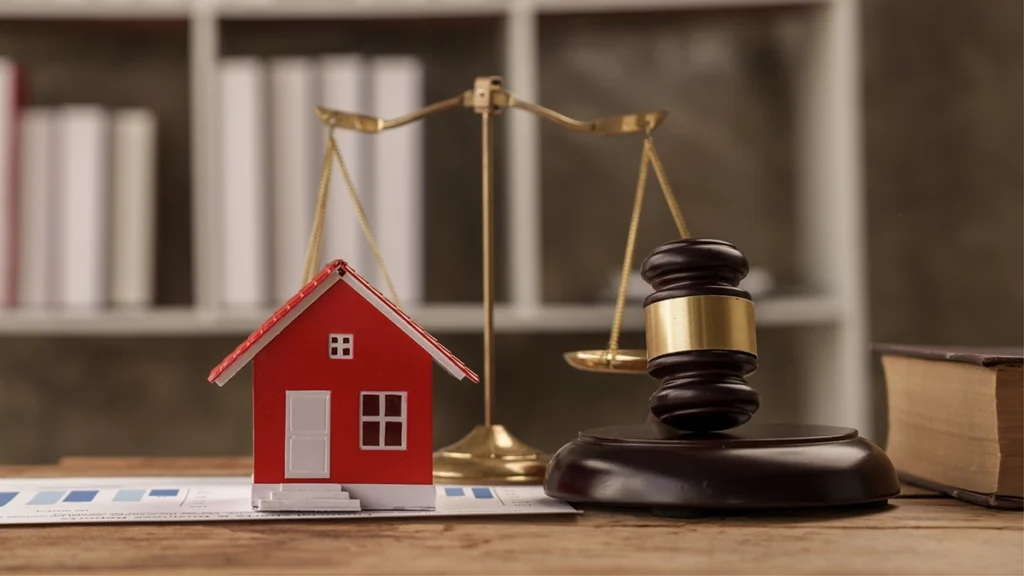Planning for the future is one of the kindest things you can do for your family. It is not just about paperwork or money, but about showing love and responsibility for the people who depend on you. As someone who wants to make things easier for your loved ones, you want to be sure every detail is right.
Still, even good intentions can lead to mistakes that cause stress, delays, and extra costs later. This article will walk you through the five most common estate planning mistakes to avoid, so you can protect your home and give your family peace of mind for years to come.
Failing To Create Any Estate Plan
The most common mistake is not creating a plan at all. Many homeowners believe a will is enough. In truth, a will alone must pass through probate, the court process that validates it and authorizes property transfers. Probate can take months, sometimes years, and often involves legal fees that eat into family resources.
Without any plan, state law decides who inherits, which may not match your wishes.
Imagine a 62-year-old widow who owns her Florida home outright. Without a deed or trust in place, her children might spend years in probate, losing both time and money. Starting with even one tool, such as a Lady Bird Deed in states that allow it, provides structure and protection. This simple step spares loved ones unnecessary stress.
Failing to plan also creates uncertainty for medical decisions, guardianship of minor children, and even management of bank accounts. Families without instructions often argue about what the deceased “would have wanted.” That conflict can last for years and permanently harm relationships. By creating a plan, even a basic one, a homeowner makes their voice clear and ensures their values guide the transition of property. The peace of mind that comes with this clarity is just as important as the financial benefits. A plan turns uncertainty into security.
Another problem with no plan is that courts treat every case the same way. They do not consider personal history, promises made, or family dynamics. A nephew who was deeply involved in caring for an elder might receive nothing, while distant relatives receive everything. Estate planning is the only way to make sure personal intent directs the outcome. When people delay planning, they unintentionally hand over this authority to strangers in a courtroom.
Overlooking Probate And Its Costs
Another mistake is underestimating the burden of probate. Probate is the legal system’s way of ensuring debts are paid and property passes correctly. But the process often comes with attorney fees, court costs, and delays that can tie up a family home. Many homeowners assume probate is unavoidable, yet in states like Florida, Texas, Michigan, West Virginia, Vermont, and North Carolina, a Lady Bird Deed bypasses it entirely.
With this deed, property passes directly to the named beneficiary when the owner dies. It does not matter if a will says something else. The Lady Bird Deed takes priority for that property. Families who take this route often see homes transferred within days instead of months. Avoiding probate keeps resources in the family rather than in the courtroom.
Probate is also a public process. Records become available to anyone who wants to see them. This means private details about family wealth, debts, and conflicts may be exposed. A Lady Bird Deed, by contrast, operates quietly. The deed is already recorded during life, and when death occurs, the transfer is handled with a simple filing of the death certificate. Privacy remains intact.
Families who value discretion often consider this one of the strongest advantages. Overlooking probate does not just risk money, it risks privacy, too.
Cost is another factor. In many states, attorney fees are calculated as a percentage of the estate’s value. This means that even modest estates face high costs if they go through probate.
For families with limited means, these costs may force the sale of the very home they wanted to preserve. Avoiding probate through tools like a Lady Bird Deed prevents this financial drain and ensures the home remains in family hands.
Ignoring Flexibility While Alive
Some homeowners mistakenly believe that choosing an estate tool means giving up control. Traditional life estates, for example, lock in a decision. Once recorded, the owner cannot sell or refinance without the beneficiary’s permission. This rigidity often scares people away from planning. A Lady Bird Deed solves this.
It is called an “enhanced” life estate because it keeps the owner’s full rights while alive. You may sell, lease, or refinance without the consent of your beneficiary.
A retired teacher in Texas, age 70, wanted her son to inherit her house but still needed the option to refinance if medical costs rose. A Lady Bird Deed let her name her son as beneficiary and still kept her in charge. Years later, when she did refinance, no one else had to sign. The deed combined future security with present-day freedom.
This flexibility matters because circumstances change. Retirement funds may not stretch as far as expected. Healthcare costs may grow. A homeowner may even wish to downsize.
The deed allows choices without interference from future heirs.
Flexibility also protects against strained family dynamics. If relationships change, the homeowner can revoke the deed and name a new beneficiary. Unlike a traditional life estate, which is locked in once signed, a Lady Bird Deed remains under the owner’s control. This ability to adapt protects both the property and the homeowner’s dignity. It reassures many people who fear “losing control” by planning ahead.
It is worth noting that this flexibility is not only practical but emotional. Many people want to know that if they change their mind tomorrow, they can update their decision. A Lady Bird Deed offers that assurance. By keeping authority in the owner’s hands, it encourages more people to take the step of planning, since they know it does not trap them into a permanent choice.
Not Coordinating Wills And Deeds
Another common error is failing to coordinate different estate planning tools. A will, by itself, does not override a Lady Bird Deed. The deed takes priority because it transfers property automatically at death. Homeowners sometimes forget to update their will after recording a deed, leading to confusion.
Suppose a homeowner in Michigan signs a Lady Bird Deed naming her daughter as beneficiary, but her old will still says her son inherits the house. When she passes, the daughter receives the property. The deed controls, not the will. Families should keep documents consistent.
Reviewing all instruments together reduces surprises and prevents conflict among heirs.
Coordination also applies to trusts, beneficiary designations on bank accounts, and life insurance policies. If these do not align, heirs may face contradictions that trigger disputes. A carefully reviewed plan ensures all pieces work together. Estate planning is like building a house.
Each wall, window, and roof section must connect correctly for the structure to stand strong. When wills, deeds, and accounts are consistent, the plan holds. When they conflict, the plan cracks under pressure.
Confusion between wills and deeds often leads to litigation. Heirs who feel excluded sometimes challenge documents in court, claiming mistakes or unfair influence.
While courts usually uphold the Lady Bird Deed, the legal fight still consumes time and resources. Clear coordination prevents these disputes before they begin. It also keeps family relationships intact by removing doubt about the homeowner’s true intent.
Delaying Updates As Life Changes
Life events often reshape estate needs. Marriage, divorce, a new child, or health challenges can all affect who should inherit. Many people make the mistake of signing documents once and never revisiting them. Estate planning is not static. A Lady Bird Deed, for instance, can be revoked or replaced at any time during the owner’s life. That makes it flexible compared to other tools.
A 67-year-old Florida homeowner recorded a deed naming her husband. Years later, after a divorce, she replaced it to name her granddaughter instead. Because she acted in time, the transfer was smooth. Failing to update would have sent the property in a direction she no longer wanted. Regular reviews ensure the plan reflects current reality.
A good rule of thumb is to review estate documents every three to five years, or sooner if major life changes occur. Each update acts like a course correction, keeping everything aligned.
Delays can also affect financial aid and tax planning. Some heirs may qualify for assistance programs that consider property ownership. Others may face unexpected property taxes if the deed is not structured correctly.
Updating documents keeps families from being caught off guard. It also provides a sense of security for heirs who know that the homeowner’s current wishes are reflected clearly in the records.
Life does not stand still, and neither should estate plans. Children grow, marriages evolve, and financial needs shift. Timely revisions ensure the documents match the reality of life and values.
Updates are also important for Medicaid planning. In some states, how property is titled can affect eligibility for long-term care programs. If the deed is outdated, heirs may lose valuable benefits or face penalties. Reviewing documents with Medicaid rules in mind can protect both care options and property transfers.
Families who overlook this connection may find themselves unprepared at the very moment they need help most.
Why These Mistakes Matter
Estate planning is not just a legal process. It affects how families experience loss and how they remember loved ones. Delays, costs, and disputes can make grief harder. A clear, updated plan helps families focus on healing instead of fighting in court. Choosing the right tools reduces stress and saves money.
Lady Bird Deeds, in states that allow them, provide a simple, effective option that balances control and protection. They also show how small choices today can prevent large problems tomorrow.
For families with modest assets, these tools can be especially valuable. A home is often the largest resource they own. Protecting it from probate ensures that wealth passes directly to the next generation. For wealthier families, avoiding probate may also help protect reputation and privacy.
Either way, avoiding mistakes makes estate planning smoother for everyone involved. Estate planning is about more than legal forms, it is about love, foresight, and respect for those who come after us.
These mistakes show how easy it is to overlook small details with large consequences. Awareness of these pitfalls helps families avoid them and create plans that work better for their own family story.
Finally, there is the emotional weight of planning. Families who receive clear instructions often describe the process as a final act of love. By contrast, those left to fight in court may carry resentment for years.
Estate planning is not only about property; it is about the memory of the person who prepared it. When mistakes are avoided, the legacy is one of care, stability, and thoughtfulness.
Bringing It All Together
When we look at these five mistakes side by side, a pattern emerges. Estate planning fails most often when families assume they have more time, believe a simple will is enough, or forget to review their decisions as life moves forward. Each mistake creates gaps that courts, creditors, or distant relatives may step in to fill.
What could have been a smooth transfer of love and security instead becomes a struggle. The lesson is not to fear estate planning, but to see it as an ongoing conversation with your family. Every step forward is an act of care for those you love most.
A Lady Bird Deed is not the answer for everyone, but where it is recognized, Florida, Texas, Michigan, West Virginia, Vermont, and North Carolina, it is a powerful tool. It avoids probate, preserves privacy, allows flexibility, and ensures that a homeowner’s wishes are carried out.
Combined with a thoughtful will and coordinated beneficiary designations, it forms the backbone of a plan that can grow and adapt with time. For many families, this one decision makes the difference between months in court and a home passed on with ease.
Most of all, avoiding these mistakes honors the effort a homeowner has put into building their life. A house is not just wood and stone. It is the setting of birthdays, holidays, and late-night conversations at the kitchen table. Passing it on with clarity and care is one of the most meaningful gifts a person can leave.
Estate planning may start with paperwork, but when done right, it ends with peace of mind and a legacy of love.
Key Takeaways
- Skipping estate planning leaves decisions to the state and often triggers probate.
- A Lady Bird Deed bypasses probate and overrides a will for that property.
- These deeds are valid only in Florida, Texas, Michigan, West Virginia, Vermont, and North Carolina.
- Review and update documents as life changes to keep plans clear and effective.



